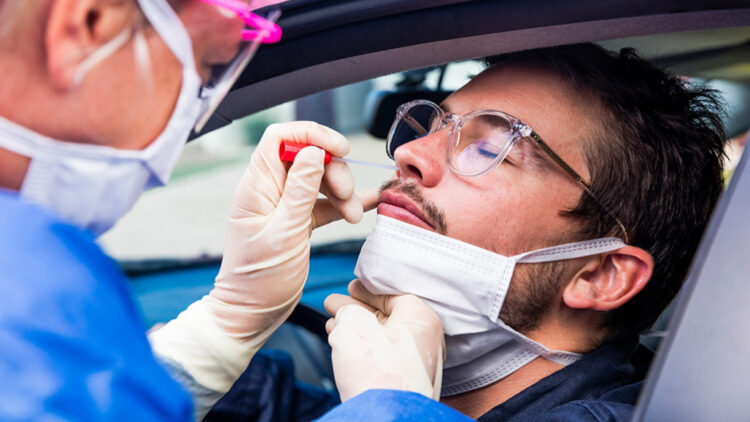By Charlotte Webster-
Re-infections make up one in 10 of cases in the Omicron variant wave, UK government figures show.
They are likely to be people who had Alpha or Delta more than 90 days before, and have added another half a million cases to the total
As from Monday 31 January, UKHSA begun including data on possible reinfection episodes in its coronavirus (COVID-19) dashboard – the UK’s main source of information about the virus.
Positive tests for any variant of COVID-19 within a 90-day time period are now considered part of the same case episode, with positive tests outside those parameters are now considered as reinfection episodes.
This is an evolution of the previous UKHSA methodology whereby people who tested positive for COVID-19 were counted only once in case numbers published on the daily dashboard, when they first tested positive. Repeat positive tests were not included.
Reinfections data is now included within and also alongside infection totals for England and Northern Ireland. Data from Scotland and Wales will follow in the days ahead.
As of 31 January, updated figures for England show 14,845,382 episodes of infection since the start of the pandemic with 588,114 (4.0%) reinfections added to the total case number for England, covering the whole pandemic.
The new data shows that reinfection rates averaged around 1.4 percent of cases until 16 November 2021, when a spike in infections took place following the emergence of the Omicron variant. Following that increase in the number of people infected, reinfections rose – with reinfections now representing around 10% of episodes per day.
A the end of last week, it was revealed that people with long Covid may have hidden damage to their lungs.
Scientists used a novel xenon gas scan method to pick up lung abnormalities not identified by routine scans.
They focused on 11 people who had not required hospital care when they first caught Covid but experienced long-lasting breathlessness after their initial infection.
A larger, more detailed study is under way to confirm the results.
The work builds on an earlier study that looked at people who had been admitted to hospital with Covid.
Researchers say the findings shed some light on why breathlessness is so common in long Covid – though the reasons for feeling short of breath are often many and complex.
Long Covid refers to a host of symptoms that continue for many weeks after a coronavirus infection and cannot be explained by another cause.
Professor Steven Riley, UKHSA’s Director General of Data and Analytics, said:
Reinfection remained at very low levels until the start of the Omicron wave. It is right that our daily reporting processes reflect how the virus has changed. We continue to see downward trends in case numbers and incidence of illness as we work to reduce the impact of the pandemic on our day-to-day lives. With vaccination still a great defence against infection and illness, please get jabbed as soon as possible.
As part of the changes made, UKHSA has used more accurate algorithms to check existing surveillance data. This has identified extra cases of infection that were previously removed as duplicates. These additional 173,328 cases represent around 1.5% of all infections in England.
The additional cases reinstated by the more accurate algorithm typically had very poor identifying information, with just 25% having NHS numbers. Improved systems have now made it possible to publish this data with confidence.
The total number of infection episodes in Northern Ireland now stands at 542,855 with 22,913 reinfections (4.2%)
P

